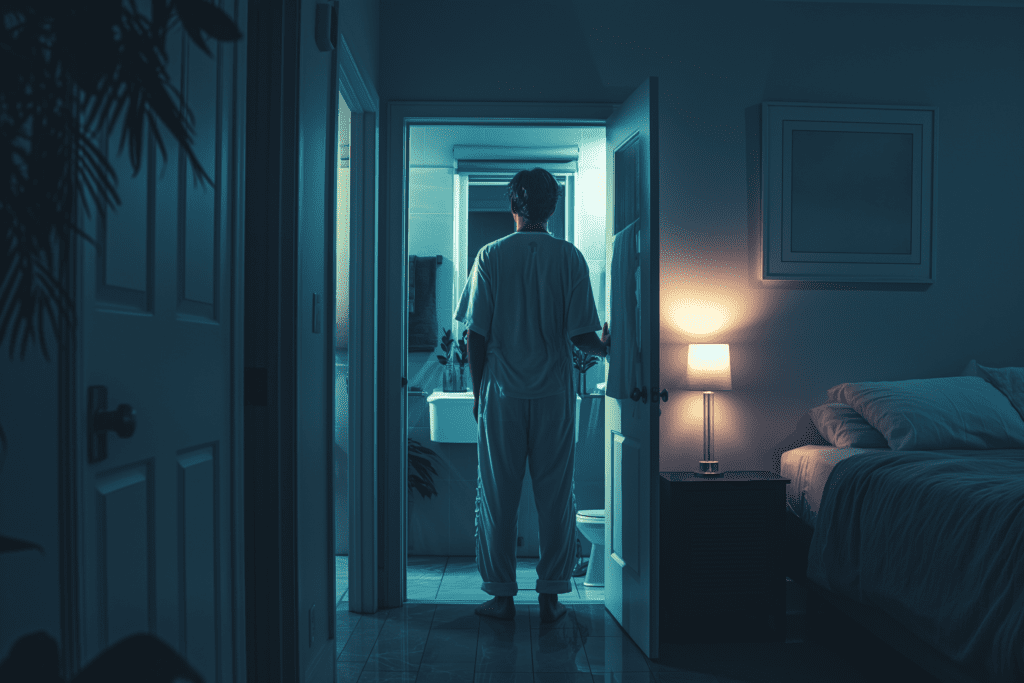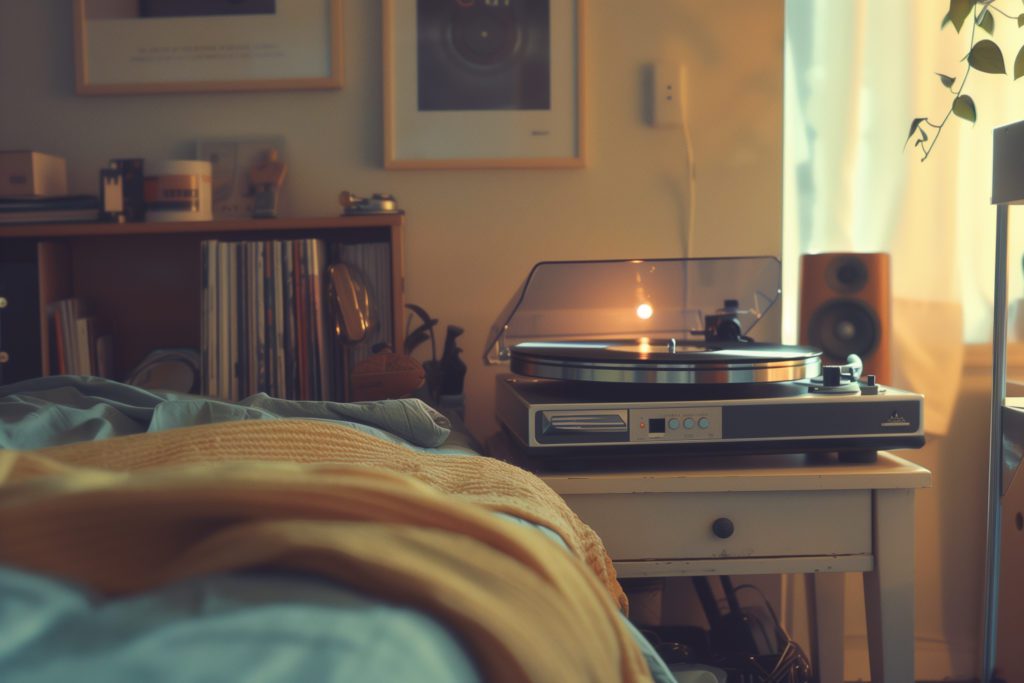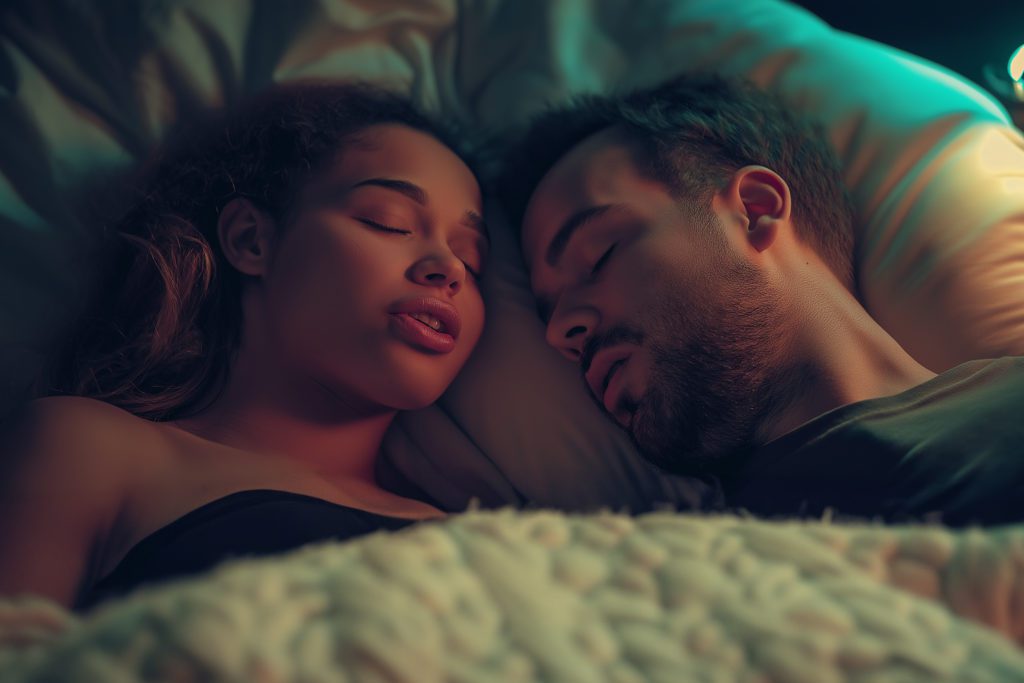
Why Does the Need to Pee Interrupt Sleep? Understanding Nocturia’s Impact on Sleep Quality
Nocturia is characterized by multiple nighttime trips to the bathroom. Explore what causes nocturia and how these trips can disturb sleep duration and quality.

The need to pee during the night is often described as being the most bothersome condition involving the urinary tract—it is also one of the most common, affecting about 1 in 3 adults over the age of 30.
Three-quarters of those participating in a survey cited a need to go to the bathroom as their primary reason for waking during the night. It’s also the only sleep disturbance that becomes more common with age—39.9% of those between the ages of 18 and 44 woke during the night with a need to urinate, and the number jumps to 77.1% for those 65 or older.
These nighttime bathroom trips are not only annoying when they separate you from your warm bed, but they can also disrupt your sleep, leading to poorer sleep quality and the complications that follow. If you wake up multiple times during the night, you may soon find the consequences of sleep deprivation bleeding into your day.
What Causes Nocturia?
Many different things may cause you to get up during the night to pee, but they typically boil down to four possibilities:
- Nocturnal polyuria. There is an overproduction of urine at night, even though urine production during the rest of the day is normal.
- Global polyuria. Urine throughout the day is overproduced, which may be because of increased fluid intake or due to an underlying disease.
- Bladder functional storage issues. The bladder is unable to store as much urine as it should or feels as though it is full before it truly is.
- Sleep disorders. Those with sleep disorders may wake during the night, which offers an opportunity for them to notice a full bladder, thus prompting a nighttime bathroom trip. Sleep apnea, snoring, and periodic leg movements in sleep are common causes of nocturia from sleep disorders.
Certain health conditions may contribute to the possibilities above, then causing you to need to get up during the night.
Some of these health conditions include:
- Diabetes
- High blood pressure
- Heart disease
- Pelvic organ prolapse
- Childbirth
- Menopause
- Bladder obstruction
- Enlarged prostate
Of note, nocturia is different from nocturnal enuresis, which is a disorder where someone is unaware of their full bladder while sleeping and urinates while in bed. In comparison, nocturia creates a discomfort that wakes you from sleep and requires you to get out of bed to go to the bathroom. When compared to nocturnal enuresis, nocturia is preferable, but it is still bothersome.
Nocturia’s Impact on Sleep
The more often you wake during the night to visit the bathroom, the worse off your health will become.
The sleep loss that accompanies nocturia can have complications that include impaired daytime functioning, increased fall risk and injury at night, and lowered productivity. Additionally, research has revealed that those who get up three or more times during the night to urinate have a significantly higher mortality rate than the general population, and those who make at least two nighttime bathroom trips are more than twice as likely to have a fracture or other fall-related trauma.
Nocturia has two primary impacts on sleep: it wakes you during the night, and it makes it difficult to fall asleep, with more than 40% of those with nocturia struggling to fall back asleep. In addition to lowering your sleep duration, these nighttime awakenings also affect your sleep quality because by waking during the night, you consequently spend less time in the restorative stages of deep sleep, which can lead to poorer quality sleep.
The results of these sleep disturbances can be dramatic, with those who wake two or more times during the night shown to have impaired functioning, health, quality of life, and productivity—this stems from getting less sleep (overall) and less good quality sleep.
Sleeping Better with Nocturia
Nocturia is very often under-reported simply because people find it embarrassing or believe it to be a normal part of aging. While nocturia does increase in incidence as you grow older, it is not something that you must inevitably succumb to—there are strategies and treatments available to help you sleep more soundly through the night.
The ways to manage nocturia and sleep better can be divided into three categories: medical treatments for nocturia, lifestyle changes for nocturia, and sleep hygiene improvement to sleep better.
Medical Treatments
It’s often best to discuss your nocturia symptoms with a healthcare provider, especially if you are frequently waking to go to the bathroom two or more times during the night. These sleep disruptions can dramatically affect your daytime functionality, making prompt treatment all the more important.
When nocturia is severe enough, medical interventions may be needed, especially if the cause is an overproduction of urine. Certain medications are available to help in this regard.
Furthermore, nocturia may be a sign of another health condition—seeing a provider offers the opportunity to diagnose and treat this condition, which not only boosts your health but can also improve your sleep by easing the abounding need to visit the bathroom during the night.
Lifestyle Changes
Beyond the medical treatment options, there are also changes you can make in your daily life to help reduce the need to urinate during the night, such as:
- Decreasing how much caffeine and alcohol you drink, especially in the afternoon and evening.
- Reducing how much you drink, of any fluid, before bed.
- Elevating your legs an hour or more before going to sleep to help reduce the resorption and conversion of peripheral edema into urine while you’re asleep.
The goal of these lifestyle changes is to reduce how much urine your body produces at night.
Improve Your Sleep Hygiene
Finally, improving your sleep hygiene can help you sleep more soundly through the night—if you don’t wake during the night, you won’t notice a full bladder and feel the need to visit the bathroom before going to sleep.
Ways to improve your sleep hygiene include following a regular nighttime routine, keeping a consistent sleep/wake schedule, relaxing before bed, and ensuring your bedroom is dark, cool, and quiet throughout the night.
Nocturia may disrupt your sleep and lessen your sleep quality thanks to its ability to rouse you from sleep and make falling back asleep hard, but good sleep can persevere when you manage your lifestyle, improve your sleep hygiene, and see a healthcare professional to manage any co-existent health conditions.

Written by
Jessica G
Medical writer freelancer who has written hundreds of articles on varying topics. Masters of Engineering degree in Biomedical Engineering.
Download Pillow
Get help
Press & News
Legal
Connect
X (Twitter)
Company
Copyright © Neybox Digital Ltd.



